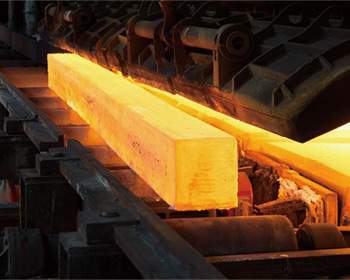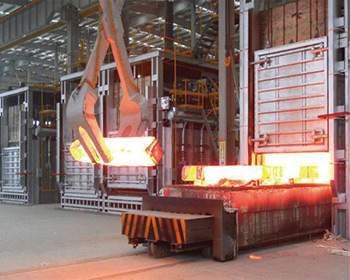
Finding the Right 4140 Steel Equivalent for Your Needs
Introduction

What is 4140 Steel?
4140 steel is an alloy steel containing chromium, molybdenum, and manganese. With a carbon content of approximately 0.38% to 0.43%, it is categorized as a medium carbon steel. The alloying elements enhance its hardenability, wear resistance, and toughness, making 4140 steel a popular choice in manufacturing applications such as gears, shafts, and structural components.
Properties of 4140 Steel
Before diving into its equivalents, it’s essential to understand the properties that make 4140 steel desirable:
- Tensile Strength: Typically ranges from 655 to 860 MPa (95,000 to 125,000 psi).
- Yield Strength: Generally falls between 415 to 580 MPa (60,000 to 84,000 psi).
- Hardness: Can reach a hardness of 28-32 HRC after heat treatment.
- Machinability: Fair machinability, which can be improved with proper cutting tools and techniques.
- Weldability: While weldable, preheating and post-weld heat treatment may be necessary to avoid cracking.
Understanding these properties will help in selecting suitable equivalents for your specific needs.
4140 Steel Equivalent Grades
Common Equivalents of 4140 Steel
Many steel grades around the world offer similar mechanical properties to 4140 steel. Below is a table summarizing some common equivalents and their properties.
| Steel Grade | Country of Origin | Chemical Composition | Tensile Strength (MPa) | Yield Strength (MPa) | Hardness (HRC) |
|---|---|---|---|---|---|
| 4140 | USA | C: 0.38-0.43, Cr: 0.8-1.1, Mo: 0.15-0.25 | 655-860 | 415-580 | 28-32 |
| 42CrMo4 | Europe (EN 10083) | C: 0.38-0.44, Cr: 0.9-1.2, Mo: 0.15-0.30 | 680-850 | 450-600 | 28-32 |
| SCM440 | Japan (JIS) | C: 0.38-0.43, Cr: 0.8-1.1, Mo: 0.15-0.25 | 655-850 | 415-600 | 28-34 |
| 1.7225 | Europe (DIN) | C: 0.38-0.43, Cr: 0.9-1.2, Mo: 0.15-0.25 | 660-850 | 450-580 | 28-32 |
| 4145 | USA | C: 0.40-0.45, Cr: 0.75-1.00, Mo: 0.15-0.25 | 700-900 | 450-600 | 30-34 |
This table provides an overview of various steel grades equivalent to 4140 steel, along with their mechanical properties and chemical compositions.
Applications of 4140 Steel and Its Equivalents
Where is 4140 Steel Used?
4140 steel and its equivalents are utilized across numerous industries due to their favorable properties. Some of the key applications include:
- Automotive Industry: Used for manufacturing components like axles, gears, and shafts.
- Aerospace: Commonly found in landing gear components, structural parts, and engine mounts.
- Oil and Gas: Utilized in drilling equipment, valves, and pipelines due to its toughness and resistance to wear.
- Construction: Often employed in structural applications, such as beams and support frames.
Advantages of Using 4140 Steel Equivalents
Selecting an equivalent to 4140 steel can provide several advantages:
- Availability: Some equivalents may be more readily available in specific regions or countries.
- Cost-Effectiveness: Alternatives may be more cost-effective depending on market conditions.
- Tailored Properties: Certain grades may offer specific properties that align better with the requirements of your application.
Considerations When Choosing 4140 Steel Equivalents

When selecting a 4140 steel equivalent, consider the following factors:
- Mechanical Properties: Ensure that the equivalent meets or exceeds the tensile and yield strength required for your application.
- Chemical Composition: Analyze the chemical makeup to avoid unexpected reactions or failures during use.
- Machinability and Weldability: Assess whether the equivalent can be easily machined or welded using your existing processes.
- Regulatory Standards: Verify that the equivalent complies with relevant industry standards and specifications.
Conclusion
Finding the right 4140 steel equivalent for your needs involves a thorough understanding of the properties and applications of both 4140 steel and its alternatives. By evaluating various steel grades, their mechanical properties, and suitability for specific applications, you can make informed decisions that enhance the performance and reliability of your projects.
Whether you require high strength, good weldability, or improved machinability, there are several options available. Always consult with suppliers and material experts to ensure you select the best equivalent for your specific requirements.
FAQ
What is the most common equivalent for 4140 steel?
The most common equivalents for 4140 steel include 42CrMo4, SCM440, and 1.7225, which are widely used in various applications requiring similar properties.
Can I substitute 4140 steel with another equivalent without any issues?
While many equivalents can be substituted for 4140 steel, it’s essential to evaluate the mechanical properties and chemical composition of the equivalent to ensure it meets the specific requirements of your application.
How does the cost of 4140 steel compare to its equivalents?
The cost of 4140 steel can vary based on market conditions and availability. Some equivalents may be more cost-effective, so it’s advisable to compare prices before making a selection.
Is heat treatment necessary for 4140 steel equivalents?
Heat treatment is often recommended for 4140 steel and its equivalents to achieve optimal mechanical properties. However, the specific treatment required may vary depending on the equivalent used.
Where can I source 4140 steel equivalents?
You can source 4140 steel equivalents from steel suppliers, manufacturers, and online platforms that specialize in industrial materials. Always verify the specifications and certifications of the product before purchasing.






